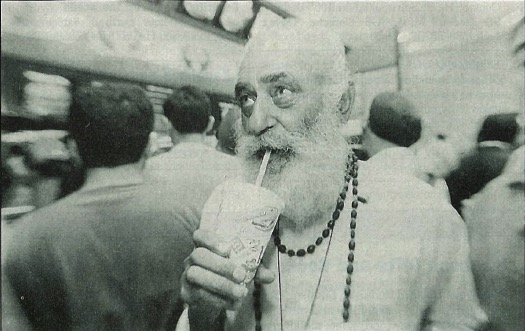The beefcake at the Miss World beauty contest in Bangalore is getting a lot more press, but the opening of a beef-free McDonald’s in Delhi may portend an equal onslaught to India’s culture and economy. Conceding to hotly debated Hindu sensibilities, the Delhi franchise is the first of McDonald’s 20,000 restaurants in 95 countries to not sell beef. By carefully positioning itself as “locally owned” (fifty percent anyway, by Indian real estate magnate Vikram Bakshi) and by using local products, it opened without the opposition suffered by rivals Pizza Hut and Kentucky Fried Chicken. McDonald’s invented for India a “Maharaja Mac” made from mutton (no consideration for sheep sensibilities) and a deep-fried vegetable patty-based Mac for vegetarians. McDonald’s expects to open 20 India outlets in the next three years.
Why does India need McDonald’s? Bharat already has local “fast food” on every street corner. The answer seems to be the same as why India needs American MTV, American soap operas and American-style beauty pageants. Once McDonald’s, Pizza Hut, KFC and others establish themselves in India, many regional restaurants will be put out of business–a phenomenon suffered all over the world. A time will come when those golden arches will dominate every Indian city, as they do in other nations.
McDonald’s is no stranger to controversy, and the strangest of all its skirmishes is currently taking place in London. There it has been mired in a multi-million-dollar, three-year libel suit–the longest in England’s history–against two penniless environmental activists, Dave Morris and Helen Steel. They attracted the wrath of the $24-billion giant by handing out a leaflet, “What’s Wrong with McDonald’s,” accusing the corporation (with 580 UK outlets) of abusing its workers, producing unhealthy food and destroying “vast areas of the Central American rainforest to raise its beef.” Morris and Steel represent themselves; McDonald’s head lawyer charges £2,000 a day. “It’s one thing to sell junk food and quite another to promote it as being nutritious,” states Morris. He is especially upset that much of the company’s yearly $1.5-billion advertising budget is aimed at children, who company research found strongly influence parents’ restaurant choices. The trial has turned into an embarrassing series of revelations about McDonald’s, many supported by their own executives and experts. Stockholders are aghast at both the expense and the negative publicity, especially on the internet–http:// www.mcspotlight.org/case/–being generated by the trial, and urge a settlement.


